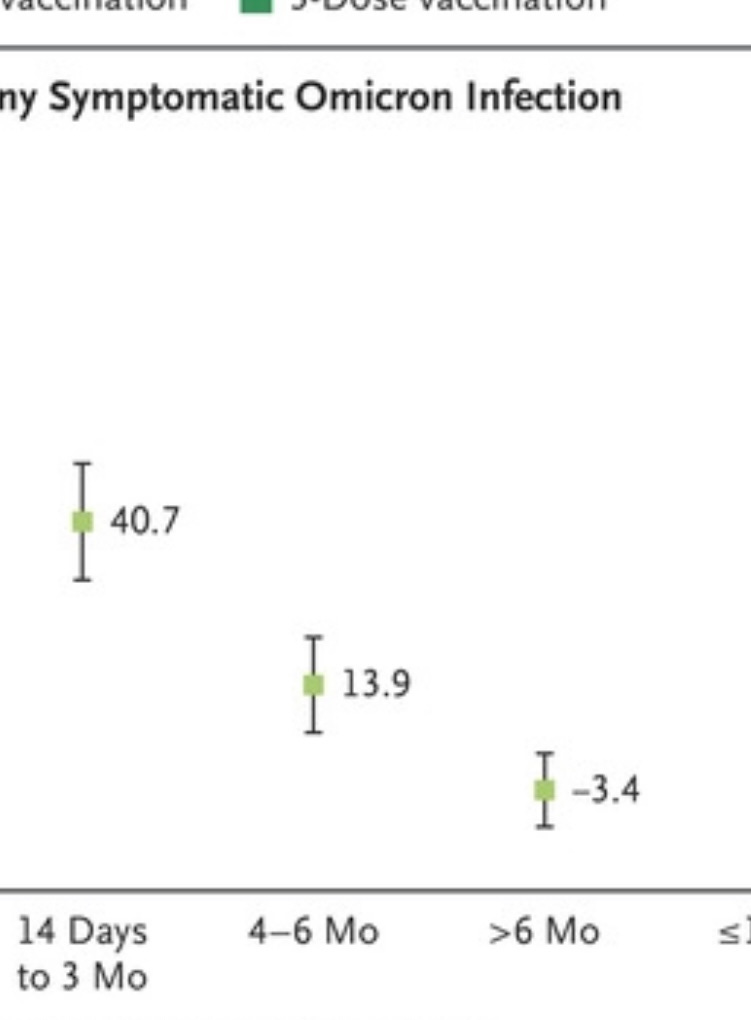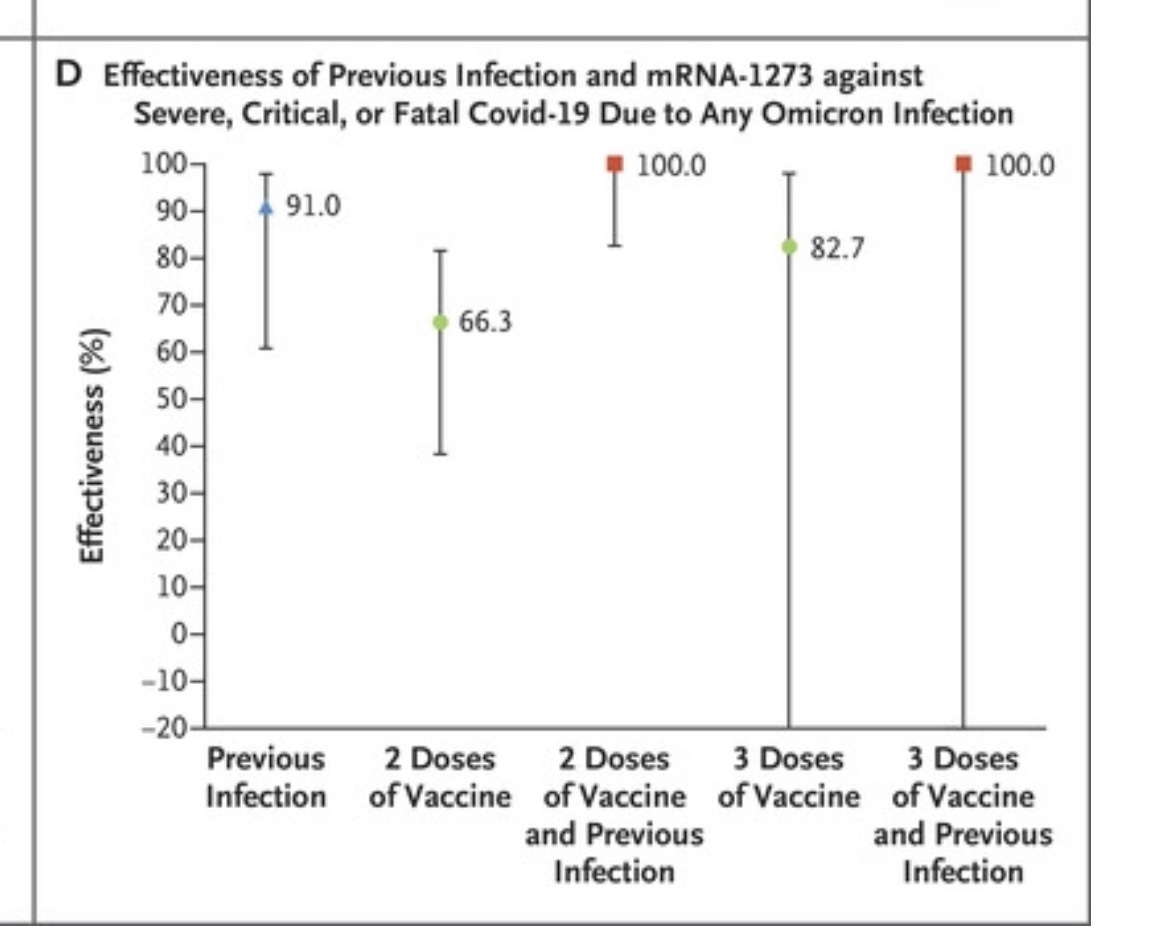The news for Covid vaccines gets worse and worse
A big study says natural immunity protects against Omicron for over a year; mRNA shots fail in months. This is the third paper with awful mRNA data in a week. When will the media even pretend to care?
Two doses of Covid vaccines offer no protection against Omicron infection and may even increase the risk of infection within months, according to a new paper in the New England Journal of Medicine.
In contrast, people previously infected with earlier coronavirus variants had a 50 percent lower risk of Omicron infection. That protection remained steady even more than a year after the initial infection.
But the details of the paper are even more devastating for mRNA shot advocates than those topline figures.
(PAYWALL HERE; STORY AVAILABLE IN 72 HOURS, OR SIGN UP FOR A ONE-WEEK TRIAL SUBSCRIPTION)
The new paper comes from researchers in Qatar, the wealthy Gulf city-state, which has comprehensive data on both vaccinations and Sars-Cov-2 infections. The New England Journal, which published it last week, is among the world’s best medical research outlets.
The researchers examined Omicron infections in Qatar this winter, comparing people who had previously been infected and those who had received mRNA shots with “unexposed” people who had not previously been vaccinated or infected.
Such a study is said to have a “test-negative, case-control” design. Although they are not as powerful as randomized controlled trials, when properly conducted and designed to avoid bias, such studies can provide solid evidence. (Unfortunately, the design can also be easily manipulated; the Centers for Disease Control has used “test-negative” studies as the basis for many junk Covid research papers.)
The Qatar researchers seem to have run the study without putting a thumb on the scale - and with a large enough sample that the results are relatively reliable.
Their findings add to the increasingly grim picture now emerging about mRNA shot protection against Omicron. A base regimen of two mRNA shots offered about 50 percent protection in the first three months, but by six months out it had fallen below zero, meaning people who had received the “vaccines” were more likely to be infected.
(Protection against Omicron from two Pfizer mRNA doses, over time):
The researchers found that a third mRNA dose briefly raised protection against Omicron over 50 percent, but after just one month it had declined to about 40 percent. (mRNA boosting started relatively late in Qatar, so the researchers did not have longer-term data.)
In contrast, protection that natural immunity offered against Omicron remained solid even a year after recovery:
—
Further, giving people who had natural immunity two shots of mRNA did nothing to increase that 50 percent protection. In other words, the public health argument that vaccination helps people even if they were already infected has proven wrong.
The authors acknowledged as much:
The protection conferred by hybrid immunity of previous infection and two-dose vaccination was similar to that of previous infection alone, at approximately 50%, which suggests that this protection originated from the previous infection and not from vaccination.
Meanwhile, while they acknowledged the failure of the mRNA shots against infection, the authors repeatedly insisted that the jabs still worked against hospitalizations and deaths - the final, endlessly repeated defense that vaccine advocates offer.
In fact, though, their data suggested that vaccine effectiveness against severe disease and death fell to about 70 percent for people who had received two shots; prior infection provided protection against severe disease that was at least as strong - and stronger, compared to the Moderna shots.
—
This paper provides a population-level counterpart to the bench findings published in the Lancet last week that showed vaccinated people had little antibody or T-cell protection against Omicron within months - even after a third dose. The shots simply do not work against Omicron. Whether they will provide any protection at all against severe outcomes within a few months of being dosed remains unclear. What to do next is also unclear.
Whether the media and public health authorities will be honest about any of this is clear, though: they won’t.
First, do no harm.
And if you can’t do no harm, ignore it!




No comments:
Post a Comment